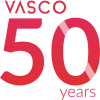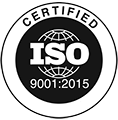Below you can choose which kind of cookies you allow on this website. Click on the "Save cookie settings" button to apply your choice.
Digital transformation… a giant wave that China is starting to ride?
Over the last few years we have seen how terms such as digital transformation, disruptive, automation and countless similar words have become part of our daily vocabulary. We might feel like we are riding a giant wave that is constantly swelling to greater heights, and we certainly don’t want to wipe out like a frustrated surfer (I can attest to that).
At this stage, we all know that new technologies help us improve internal and external processes in companies, and a future without them is “inconceivable” as Visini would say.
But have we truly mastered this terminology, and do we really know what we are talking about?
As far as I am concerned, 5G, AI, the IoT, Blockchain, Big Data or the recent Quantum Computing were all pretty much the same, meaning that they sound great when you say them, but if you are put on the spot and asked to explain them, you end up looking and feeling rather foolish.
I have decided to provide a few simple definitions for some of these terms so that we can understand their relevance within the international market in today’s truly globalised world:
5G: This term is used to refer to 5th generation mobile phones. OK, but what does that mean? So the first mobile phones ever developed, which only allowed us to make phone calls, were 1st generation (1G). 2nd generation phones (2G) allowed us to send text messages (2G), third generation phones (3G) brought us the internet, and 4th generation (4G) enabled us to download videos with total ease as well as a host of other things.
So 5th generation (5G) phones will allow us to do all of the above but much faster and without latency (delay for those who play on the Play Station) whilst connecting us to anything and anyone.
IoT: This would be something like all the different machines with sensors, Bluetooth, Wi-Fi, and other connection options, constantly watching and listening to us to learn our routines in order to make our life easier….(and make us a little less smart along the way)
AI: This term always reminds me of the famous chess game between the great chess master Garry Kasparov and IBM’s Deep Blue computer. I remember thinking it was amazing that a computer could just…think! Not to mention beat the Beast from Baku, which is no mean feat. Let’s say that they are machines that are programmed to carry out certain tasks automatically without the need for humans to monitor their work, such as Alexa or Siri… they even tell jokes!
Big Data: The analysis of a huge amount of data that are broken down to the nth degree to find out people’s tastes, preferences, behaviours and to segment them into different categories and use predictive models so that organisations can have access to acceptance indicators for their products, potential sales…how’s about that then!
So, these terms, which were “gobbledygook” to many of us, are being put into practice by the Chinese in a completely coordinated way, strategically well prepared and designed to make the ultimate leap to drive and lead the new technologies of the 21st century under the name the Digital Silk Road (or DSR).
Beyond submarine cables, satellite communications control and navigation systems or 5G technology implementations in countries and strategic areas in Africa, the Middle East, parts of Europe and Asia or Latin America, the DSR demonstrates the importance of joint and fully synchronised action to ensure the continued progress of a mega-project of this calibre at an unstoppable pace.
“Innovation drives productivity; it makes companies competitive and countries strong. We need to keep up with the trend of the Fourth Industrial Revolution, take advantage of the opportunities created by digital development – networked and smart; explore new technologies and business models, foster new growth drivers, explore new avenues of development, and build the Digital Silk Road and the Innovation Silk Road”
XI JINPING dixit.
The intention of the DSR is to encompass all the participants in the Belt and Road Initiative (BRI) by creating a single digital platform that seamlessly integrates all commerce in the BRI.
Single digital platform!
This means that supply chain and logistics providers are working together to achieve this goal. There are significant and obvious benefits to this level of integration, particularly the seamless integration of data transfer. This would accelerate trade across regional borders, as a central database reduces dependence on documentation currently handled manually, such as bills of lading, letters of credit, and customs clearance documentation.
But what about in the West? Well, I would say that everyone is fighting on their own front and trying to develop integrations individually (or in other words, each figure within the logistics chain wants to build its own digital silk road).
No matter how much a company or even a port community in any Western city manages to draw and connect different systems in order to have high visibility in the operational and commercial chain, this will only ever cover a minimal part of the logistics chain as a whole.
There are strategic issues that have economic implications for enterprises looking to be truly global. Will we be able to choose between trading within a single digital platform or a multitude of platforms that have an interface (API or EDI) that would allow different operational data systems to communicate with each other? What are the cost implications for doing business with two digital business ecosystems that have a limited capacity to communicate with each other?
In the short and medium term, it is increasingly evident that trade with China will require incorporation into the DSR.
Traceability, transparency, and real-time information are essential elements that we must demand, but not because we are deciding to do this unilaterally. It is because society is increasingly demanding it, and without new technologies and all this highfalutin jargon, we will not be able to achieve it, but even less so without the glue that binds everything together, such as consensus and coordination. Otherwise we will hardly be able to achieve anything even close to the DRS and we will have to fall into line.

Mikel Lavin
General Manager en Intermodal Forwarding






